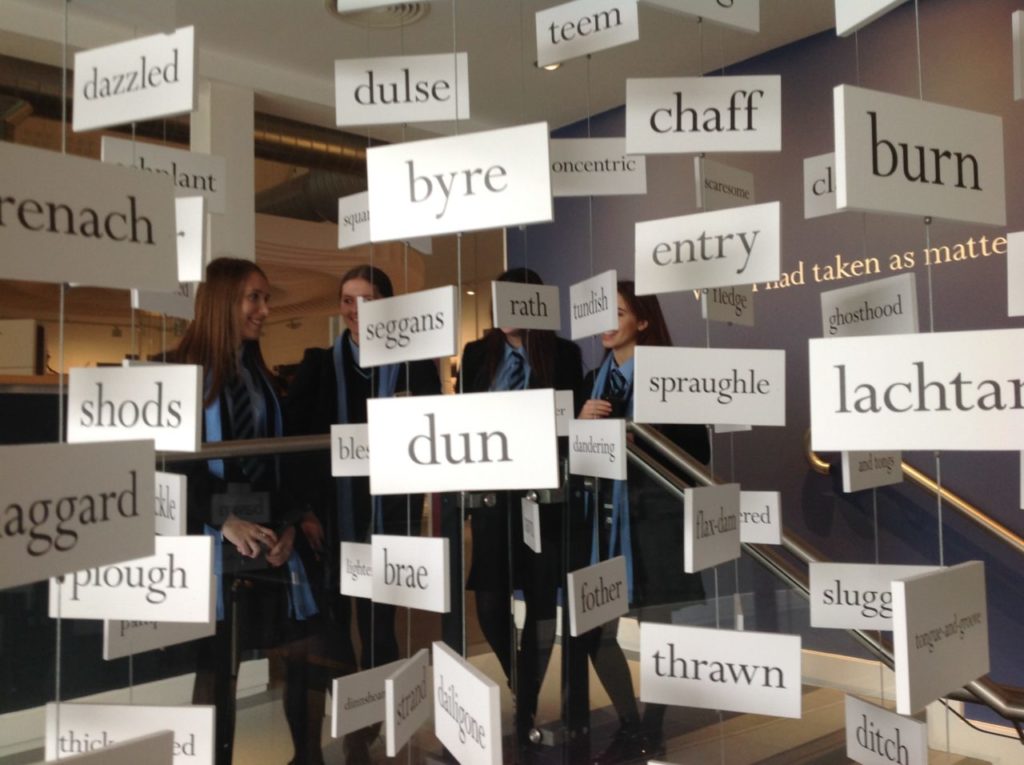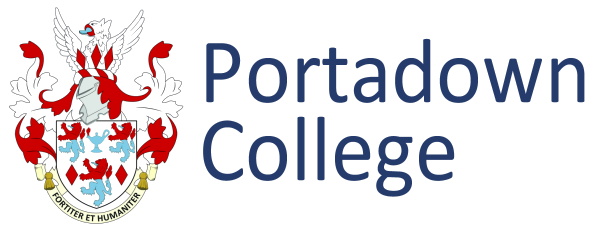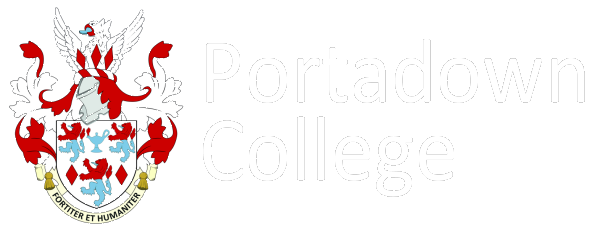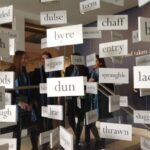Mrs R Murphy (Head Of Department)
Miss P Curry
Miss S Gowing
Mrs C Press
Mrs S Harbinson
English (subjects: English Language and English Literature)

The study of English develops a range of skills which transcend the specific context of the English classroom and are transferable personally and professionally. These include the ability to communicate articulately, assume leadership, make decisions and resolve problems, work as part of a team, read with discernment and write effectively.
GCSE English Literature aims to promote and develop a life-long enjoyment of literature through creative and critical engagement with a range of texts. This provides a foundation on which to scaffold skills which will nurture confidence, empathy, and intellectual independence as well as facilitating the achievement of academic excellence. A Level will broaden and deepen the knowledge, and understanding nurtured at GCSE, affording students opportunities to appreciate how literature may be a catalyst for emotional expression, political and social attitudes, moral values and spiritual experiences.
More detail on all specifications may be found on CCEA’s website https://ccea.org.uk/
The English Department facilitate a range of extra-curricular activities including Book Club in the Library, Journalism, Debating, Public Speaking and a Writer’s Room (facilitated through a Google Classroom). These provide opportunities to develop skills in speaking and listening, reading and writing outside of the classroom, all of which contribute to better performance academically. There is something for everyone.
Students are afforded opportunities to extend their educational engagement through extra-curricular experiences such as attending theatrical performances, workshops and talks. Trips and experiences have included visits to Seamus Heaney’s Homeplace, theatre visits to see productions of texts studied such as Macbeth and Juno and the Paycock, cinema trips to see National Theatre Live productions such as King Lear and The Streetcar Named Desire, context visits to Tenement Houses in Dublin, Cinemagic script writing workshops and interviews with industry experts, BBC Young Reporter Digital Cities events and interactive tours of BBC Broadcasting House.
You can follow the English Department on Twitter @pcenglish11 and @pcjournalism and on Instagram: pcbookshelf to see the activities of the English Department for yourself.
GCSE English Language
Examination board: CCEA
What is GCSE English about?
Students studying English Language will benefit personally through opportunities to express their opinion, assume leadership and work as part of a team, all of which will nurture self-esteem, confidence and empathy. They will acquire a range of skills transferable to the workplace such as effective oral and written communication.
What will I study and how will I be assessed?
| Content | Assessment | % |
| Unit 1: Writing for Purpose and Audience and Reading to Access Non-Fiction and Media Texts | External written examination Untiered 1 hour 45 mins Students respond to five tasks. | 30% |
| Unit 2: Speaking and Listening | Controlled Assessment Untiered | 20% |
| Unit 3: Studying Spoken and Written Language | Controlled Assessment Untiered | 20% |
| Unit 4: Personal or Creative Writing and Reading Literary and Non-Fiction Texts | External written examination Untiered 1 hour 45 mins Students respond to five tasks. | 30% |
What can this subject lead to?
Competency in English Language is foundational to success in all careers. Studying English Language enhances the inter-personal skills necessary in a range of professions such as personnel management, social work, marketing and advertising, travel and tourism.
GCSE English Literature
Examination board: CCEA
What is GCSE English Literature about?
English Literature fosters a life-long enjoyment of prose, drama and poetry through creative and critical engagement with a range of texts. It also develops a range of skills such as the ability to think independently, research, plan, and reason coherently. Opportunities for cultural outings enhance engagement with literature as well as highlighting the importance of the arts in the business and economic sectors.
What will I study and how will I be assessed?
| Content | Assessment | Weightings |
| Unit 1: The Study of Prose | External written examination 1 hour 45 mins Students answer two questions. | 30% |
| Unit 2: The Study of Drama and Poetry | External written examination 2 hours Students answer two questions. | 50% |
| Unit 3: The Study of Shakespeare | External written examination 2 hours Students complete an extended writing question based on a theme. | 20% |
What can this subject lead to?
Many who study GCSE English Literature progress to English Literature at A Level which is an appropriate precursor to careers in the creative industries such as writing, publishing, acting, media and the arts. It may also lead to employment in areas specifically related to engagement with literature such as librarianship, journalism and teaching, as well as providing a perfect foundation for work in the legal financial and health sectors.
English Literature
Examination Board: CCEA
What is A Level English Literature about?
English Literature is the study of literary texts of different genres, spanning a range of contexts. Students will learn how context influences text and how writers craft language to explore themes of universal significance. In so doing they will develop the ability to critically evaluate, think independently and communicate effectively in spoken and written language.
What will I study and how will I be assessed?
| AS Content | Assessment | Weighting |
| AS 1 The Study of Poetry 1900 – Present And Drama 1900 Present | External Examination | 60% of AS 24% of A Level |
| AS 2 The Study of Prose Pre 1900 | External Examination | 40% of AS 16% of A Level |
| A2 Content | Assessment | Weighting |
| A2 1: Shakespearean Genres | External Examination | 20% of A Level |
| A2 2: The Study of Poetry Pre 1900 and Unseen Poetry | External Examination | 20% of A Level |
| A2 3: Internal Assessment | Internal Assessment | 20% of A Level |
Are there any particular qualities, skills I should have to study this course and to what kind of careers can it lead?
To study English at A Level you should enjoy reading, researching, working independently, discussing your point of view with others and writing analytically.
Many who study Literature at A Level continue their studies at university. This affords them the opportunity to pursue specific interests in a genre or period of literature and to broaden and deepen the experience of literature initiated at A Level. A qualification in English Literature at A Level is an excellent stepping stone to careers in the creative industries or further studies in areas such as librarianship, journalism and teaching, or law, finance, management and human resources.
Entry requirement: B in English Language and B in English Literature.
The analytical and communication abilities (the ability to read, reflect, critique, synthesise and verbalise) that GCSE English Language and English Literature provide are transferable skills that are useful in all occupations and highly valued by universities and a range of non – degree specific graduate employers.
Studying English Language and English Literature at GCSE and English Literature at A Level develops a range of vocational skills; consequently students of these disciplines find careers in a wide range of areas such as: the arts, human resources, legal professions, leisure and tourism, management (public and private sector), marketing and public relations, the media, social work, health, civil service, teaching and theology.
A qualification in English Literature at A Level is highly regarded as evidence of competence in communication, selection, synthesis, analysis and empathy.
The English Department have close links with a range of organisations through which our students gain insight into broadcasting, writing and editing to name a few. Students engage in: interactive workshops in the fields of drama, journalism, broadcasting and production; Q&A with experienced broadcasters, journalists, poets and authors; writing initiatives and writing competitions across a range of genres.
- https://www.youngwriters.co.uk/
- https://cinemagic.org.uk/
- https://www.bbc.co.uk/academy/events/digital-cities
- https://www.bbc.co.uk/teach/young-reporter
- https://nationalpoetryday.co.uk/
- https://readingagency.org.uk/
Students are encouraged to take part in public speaking competitions organised by BPW and the Soroptomists which create links to industry such as Ulster Carpets in Portadown.





